This page offers activities that can be used in the classroom or can be modified to use in other group settings. Please find a descriptions of the organizations and resources below.
- Collaborative Discussion Project – Interactivity Foundation collected a toolkit of activities to teach collaborative discussion skills and mindsets. The toolkit includes 5 modules with activities related to different types of collaboration.
- Duke University Polarization Lab – Offers free online resources to help fight polarization by allowing people to measure the strength of their echo chamber, learn what their tweets say about their political ideology, and follow bots that help find conversation partners with views that differ from their own. This can be very instructive to students as they consider the ways in which their own social media habits are shaping their understanding of—and attitudes toward—people with whom they disagree.
- Inclusive Teaching through Active Learning – Brown University’s Harriet W. Sheridan Center for Teaching and Learning provides activities on Inclusive Teaching Through Active Learning. Learn how to structure active learning to inclusive learning, what you’ll need to reach active learning techniques, and how to use an active approach in online and hybrid classrooms.
- Lesson: Talking Across Differences – Beyond use during digital or in-person orientations, the video adaptation provided by the Foundation for Individual Rights and Expression can be placed on university web pages explaining student rights or diversity and inclusion pages to give a fuller picture of how to embrace difficult conversations.
- Practicing Democracy Toolkit – Campus Connect provides a comprehensive toolkit including practical approaches and strategies to incorporate into the classroom. These strategies develop students’ capacity to engage in talking across difference and public problem-solving.
- The Constructive Dialogue Institute’s Activities & Resources – Within their resource library, the Constructive Dialogue Institute has helpful civil discourse and listening activities such as “Hopes and Concerns”, “Spotlight”, “Structure for Group Dialogue”, “Listening Sessions”, “The Debrief”, “Minute Meetups”, “Co-Creating Resilient Group Norms”, “The Questions Game”, “Spectrum of Beliefs”, and “My Political Values”.
- The Unify Challenge – Unify America presents some helpful materials, including online college bowls that match people from different ideological backgrounds for one-on-one guided conversations online. The easy-to-use online platform provides everything participants need to engage in a one-hour guided activity appropriate for extra-curricular, co-curricular, and curricular use.
- What Does Community Membership Mean? – The University of Michigan offers a variety of civic learning activities on their website, and this particular activity helps students think about what it means to be a member of the community and consider how they want to act as a member of the university community.
- YourLogicalFallacyIs.com – Offers free materials to teach students, or yourself, about logical fallacies and individual biases that clog our thinking and prevent us from logical, evidence-based reasoning and discussions. Understanding our own biases and recognizing common logical fallacies is an important first step to creating the self-awareness and critical thinking skills required to engaged in productive conversations about controversial political issues.

